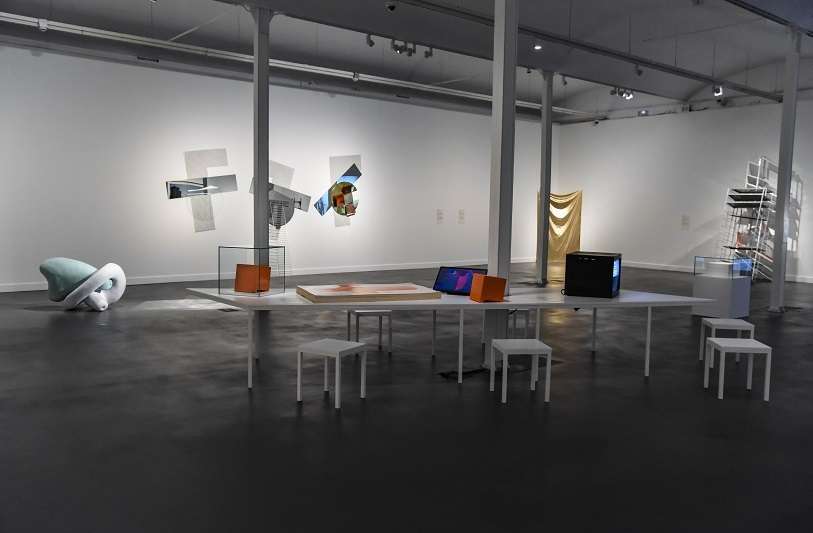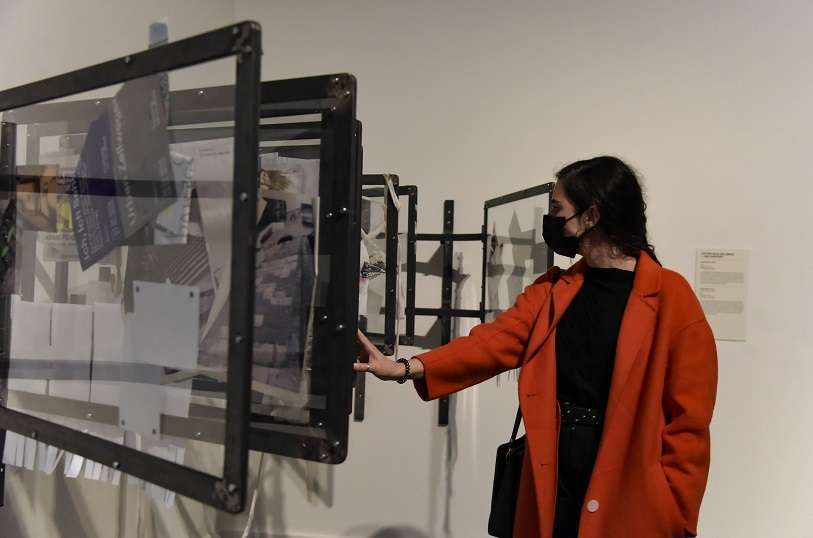CaixaForum Barcelona explores a collective and ecological view of art

The director of CaixaForum Barcelona, Lluís Noguera, the head of Exhibition Contents of the "la Caixa" Foundation, Carla Tarruella, and the curator Xavier Acarín Wieland presented the exhibition 'The Next Mutation' as part of the current Call for Curatorship of the "la Caixa" Foundation's Artistic Creation Support programme. This is the exhibition that inaugurates the 2021- 2022 season cycle of the call.

Throughout the season and until the end of 2022, Room 2 of CaixaForum Barcelona will be devoted to the exhibition of the three proposals by emerging curators that have been selected in this programme, which is now in its fifth edition. The programme offers young professionals the opportunity to lead a curatorial project based on the "la Caixa" Foundation Contemporary Art Collection and the MACBA Collection, with the help of professionals from the institution and external tutors. It is also an opportunity for emerging curators to offer innovative readings of these art collections. In addition, the institution has recently reinforced this initiative by extending its support for contemporary creation and has split the biennial call into a second line of support for the production of works of art with a special focus on artists under the age of 30. This year it is the turn of a new curatorial cycle and, after 'The Next Mutation', the exhibitions 'Rats! Rats! Rats! Rats! The poetic grammar of the hack' and 'Digesting the world where it is'.

With this double call, the "la Caixa" Foundation continues its longstanding commitment to new talents in the field of culture in general and the visual arts in particular.
The group exhibition 'The Next Mutation' takes the pandemic as its starting point to understand its significance not only as a health, social and economic crisis, but also as a climate crisis that forces us to reconsider how we live within the complexity of ecosystems that make up the earth. Now that COVID-19 has shaken and transformed the ways of life, the thesis of the exhibition proposes appropriating the mutation, "imitating" the virus and taking advantage of this time of profound change to move on to another way of relating to the world and to others based on interdependence, mutualism, and plurality.

This conception of the world has been experienced by contemporary artistic practices in which the artistic object has become a trigger for collaboration and affection, especially since the late 1960s. The art object becomes a performative object. This is precisely what the exhibition aims to do: to foster intimacy, touch, the ephemeral, and to situate bodies in a performative relationship with their surroundings. Dating from the late 1960s to the present day, the 19 works in the exhibition - including sculptures, photographs, installations, works on paper and audiovisuals - explore more permeable boundaries between the art object and the viewer that allow for a more egalitarian and communal interrelationship.

All the works in the exhibition come from the "la Caixa" Foundation Contemporary Art Collection and the MACBA Collection, except for two pieces created specifically for the exhibition: a sound installation by Eulàlia Garcia Valls and a sculpture by the tandem Víctor Ruiz Colomer + Joe Highton. The other artists, belonging to various generations, are: Moisès Villèlia, Dora García, Nacho Criado, Francesc Torres, Gego, Antoni Llena, Joan Jonas, Àngels Ribé, Félix González-Torres, Absalon, Eva Fàbregas, Cyprien Gaillard, Isa Genzken and Wolfgang Tillmans.








